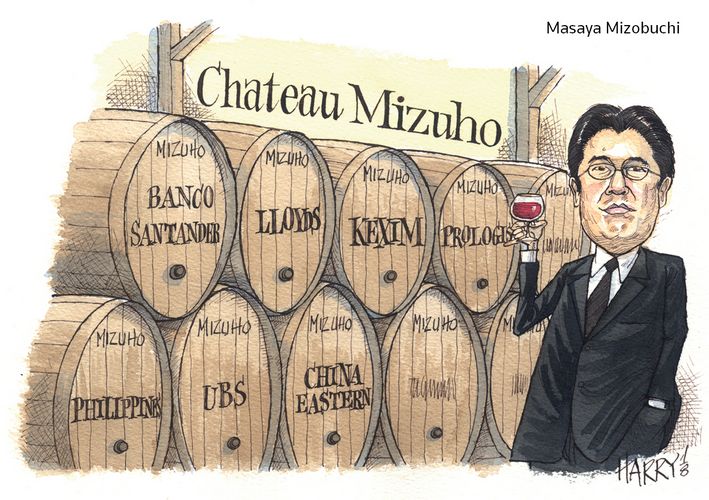Yen bond issuance rebounded in 2018 as geopolitical tensions eased and global issuers capitalised on better swap rates and rising Japanese risk appetite. For doing more than its peers to connect issuers and investors, Mizuho Securities is IFR’s Yen Bond House of the Year.
Tightening currency basis swaps, easing geopolitical tensions between the US and North Korea and clarifications on holdings of loss-absorbing bonds provided a trio of tailwinds for the yen bond market in 2018, and Mizuho Securities was ahead of the game on all three fronts.
Five-year dollar/yen basis swaps tightened from the –90bp area in early 2017 to around –50bp during IFR’s review period, making the yen market more attractive for foreign borrowers.
Japan’s Financial Services Agency in April provided relief to many Japanese regional banks with guidelines that their investments in bail-in bonds from overseas banks would largely escape higher risk weightings. Meanwhile on the Korean peninsula, geopolitical tensions eased after the historic summit between the US and North Korea.
Mizuho’s constant engagement with issuers and investors meant it was best-placed to capture the key deals of the year when the tailwinds started to blow.
“Since last year and even the year before, we have been proactively making sales pitches to issuers and providing information to investors, and these efforts started to bear fruit,” said Masaya Mizobuchi, head of global debt capital markets at Mizuho.
“We have also assisted investor relations work a lot more this year than last year, and this surely helped to bring investor feedback and issuer needs together.”
Mizuho surprised other banks by opening the door of the yen market for Southern European issuers. Mizuho, together with Nomura, helped Banco Santander to make its Samurai debut in December 2017, an encouraging signal for the yen market, especially since it sold senior non-preferred bonds rather than old-style senior bonds.
Since 2014, Mizuho had been assisting Santander group companies to sell Pro-bonds, including Banco Santander Chile, Santander International, Santander UK and Santander Consumer Finance.
Bail-in bonds were flavour of the year in Japan, and nine global banks flocked to the yen market to sell their bail-in-able bonds after the FSA’s clarification, all of which drew enormous demand from regional investors.
Mizuho helped bring seven of the nine to market, not just by acting as bookrunner but also by keeping investors updated with regular research reports on how much each global bank needed to raise from bail-in bonds and the legislative progress regarding loss-absorbing securities in each country.
In the first trade after the FSA announcement, Mizuho helped Lloyds to sell loss-absorbing securities in a ¥169bn (US$1.5bn) three-part deal that was the biggest yen offering during the IFR review period. The deal attracted increased demand from regional investors and showed what was possible for non-preferred and regulatory offerings.
Mizuho’s meticulous preparations on this deal and many others produced a vintage year, as its collection of key mandates helped it stand out from the pack.
Among other deals from financial issuers, Mizuho also brought UBS back to the yen market after a 10-year absence, with similar success.
In June, Mizuho reintroduced Export-Import Bank of Korea to the yen market, taking advantage of the easing of tensions on the Korean peninsula. Its ¥120bn dual-tranche deal came just a few days after the US-North Korea summit in Singapore. In order for the issuer to return to the Samurai market so swiftly, Mizuho, working with Daiwa, assisted with a non-deal roadshow in February.
Kexim saw the total book reach close to ¥250bn, and its deal paved the way for yen issues from other South Korean borrowers, including two more Samurai bonds via Mizuho and other leads.
Mizuho also continued the growth of global yen bonds with a ¥55.1bn debut for US real estate and logistics group Prologis in September, and was involved in bringing China Eastern Airlines to the Pro-bond market with a debut ¥50bn credit-enhanced deal in March.
To see the digital version of IFR Awards 2018, please click here.
To purchase printed copies or a PDF of IFR Awards 2018, please email gloria.balbastro@refinitiv.com.



